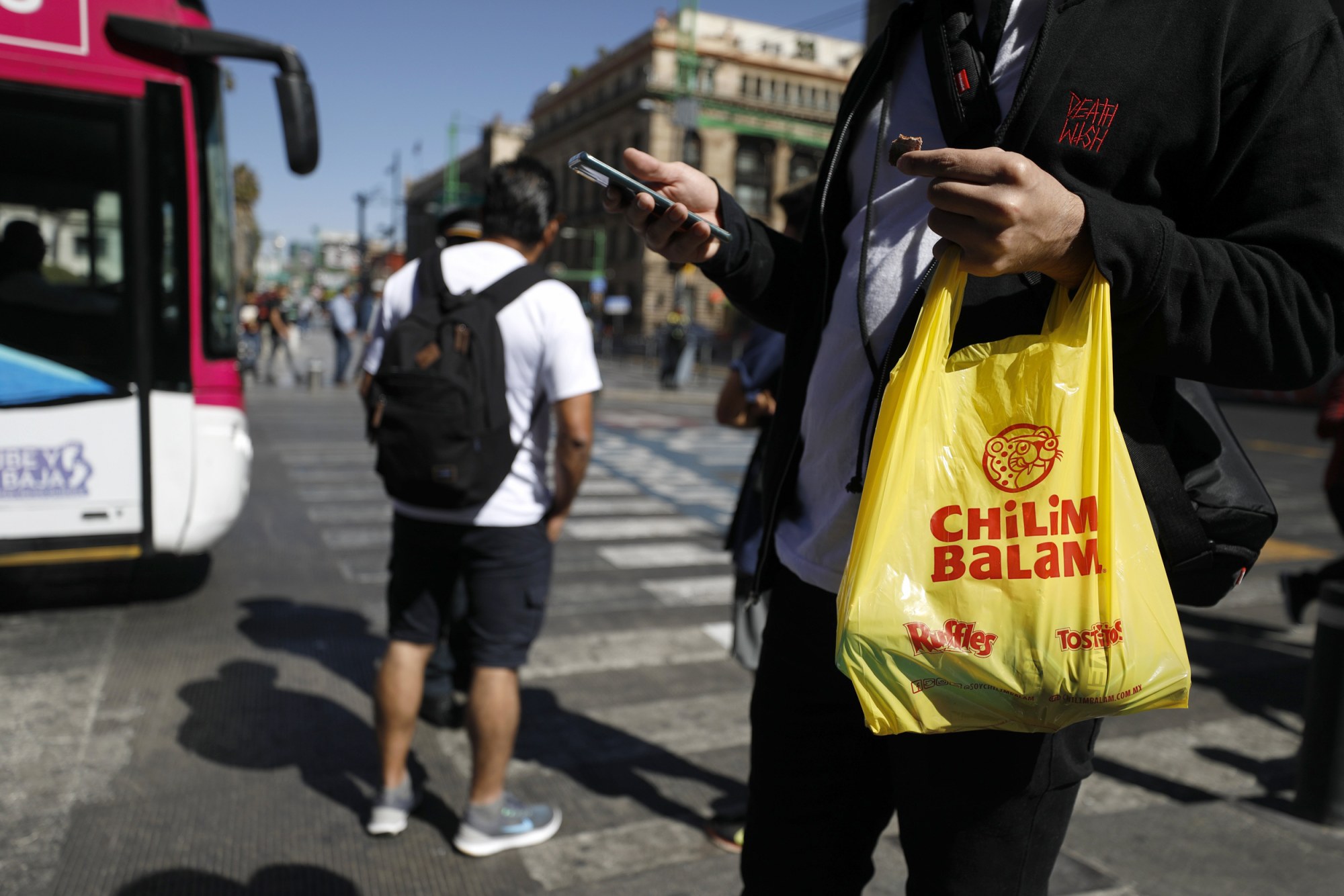Tips for Flying in Mexico and Finding Cheap Domestic Flights
Posted by Ted Campbell
Mexico’s discount airlines and general airport information
Updated January 2020
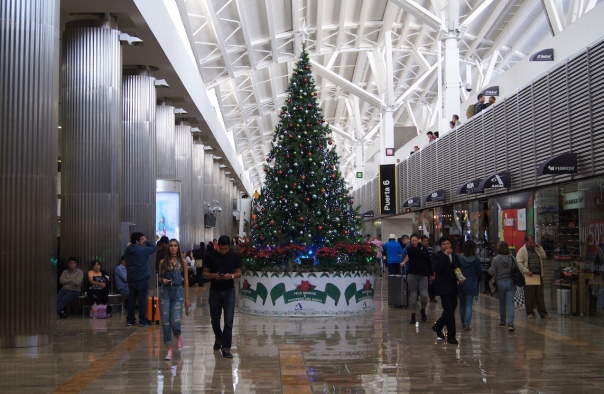
I’ve said it before and I’ll say it again: Unless you enjoy excessive air conditioning, bad movies in loud Spanish, or sleeping sitting up, don’t take a long-distance bus between major cities in Mexico, at least not before checking the price of domestic flights.
This isn’t because long distance buses are dangerous or unreasonably uncomfortable. In fact, for most independent travelers in Mexico, the bus is the way to go. A variety of bus companies with competitive prices travel all over the country, and riding them can be a fun experience that brings you closer to the locals. Second- and third-class buses are often surprisingly cheap, and though expensive, first-class buses are much nicer than Greyhound, with big reclining seats and plenty of legroom.
But a flight from, say, Mexico City to Cancun is bound to be cheaper than the first-class bus, especially if you start looking for discount fares a month or so early. And obviously much faster—a two-hour trip instead of 20 (or more).
Looking for flights
Before you commit to that overnight bus trip, take a look at the schedules and prices of Mexican domestic airlines, which I’ve listed below. If possible, start searching for flights about a month or two before your trip and check back from time to time to look for temporary promotions. A good way to hear about these discounts is to sign up for their mailing lists or follow the airlines on Facebook or Twitter.
Although you can view them in English, their websites can be a little clunky, so search with patience. One good feature of many websites is that you can see the prices for the days before and after the day you choose, so you’ll know if a different date is cheaper.
When you are ready to pay, these discount airlines try to add on all kinds of extra fees, like for extra luggage or choosing your seat early. Just say no to everything. Also, you can save a tiny little bit of money by paying in pesos instead of dollars. The exchange rate they use is slightly less favorable than the one your bank will probably use, and of course less favorable than the official rate.
Tip: If you’re a resident of Mexico, like me, and will fly international, when buying tickets check the box that you’re a Mexican citizen so you won’t pay the fee for foreigners to enter Mexico, which is about 20 USD and automatically added to the price of flights. But it depends on the airline; this won’t work if the webpage also asks for the passport number.
Sometimes these airlines show up on travel sites like expedia.com, but it’s a good idea to check their websites directly. And of course other airlines fly within Mexico, including all the big international ones. But, like for that overnight bus ride, ALWAYS compare with Mexico’s domestic companies:
Aeromexico
Aeromexico is a major airline with destinations all over the world, so it may not have the cheapest prices, but it’s worth checking first. It’s partnered with Delta Airlines (among others), so checking the Delta website is a good idea too.
All my experiences with Aeromexico and Delta have been positive: courteous staff, no problems with large carry-ons, and free meals and drinks.
Interjet
Interjet is an inexpensive option for all the major cities in Mexico and nine in the U.S., and it has regular flights to Cuba and several destinations in Central America.
Interjet was my favorite for a long time, with good prices and hassle free flights. No longer–my most recent flights on Interjet have been bad from beginning to end, with long, unexplained delays that ended with, once we were on the plane, a flight attendant refusing to give my wife and me a glass of water before takeoff, and then going out of his way to serve us last, even though we were in the middle of the plane. Yes, he actually began serving drinks in the row behind us, then started over at the front of the plane.(We were dying of thirst; all the stores in the airport had closed, and because of bad water quality there are no drinking fountains in Mexico. And of course we weren’t rude to him, just calmly asked for water.)
These experiences coincide with serious problems in the company: near bankrupcy and, believe it or not, an employee attacking a customer for filming him. Interjet, I’m afraid your days may be numbered.
Volaris
Volaris was my last choice for a long time (now Interjet has that lucky spot). It has all the usual problems that plague discount airlines like disorganization and unprofessionalism. Their flights are typically the cheapest, however, especially during their promotions. They also have more destinations than Interjet, including lots of cities in the U.S.
I’ve flown with Volaris many times and usually everything is fine, although delays are common, they send you way too many emails after you buy tickets (in Spanish, which has confused a few of my English-speaking friends who wondered what all the notices were about), they do everything they can to add extra charges to your flight, and you can’t trust any information you get from their call center.
Don’t put your correct phone number in the online form when you buy tickets, even though it says it’s for flight notifications, because they will call you regularly to try to sell you their credit card or some other annoying thing. (Note: never give your phone number to any Mexican company, especially banks, because they will call you constantly.)
Also, all the most recent times I’ve flown with Volaris, they’ve weighed my carry-on, and charged anyone whose was even slightly over 10 kilos. And checking a bag is expensive, of course. This is an idiotic practice, as everyone I’ve seen charged got super angry. I suppose Volaris would rather have the $20 or $30 USD than a good reputation.
These are minor nuisances, perhaps. Don’t worry about the plane falling out of the sky. And hey, their flights are really cheap, and I have no complaints about the courtesy of their flight attendants and staff, other than an incredibly rude supervisor in Cancun.
VivaAerobus
VivaAerobus has fewer destinations to Mexico and the U.S. than Interjet or Volaris, but their prices can be similarly low. They have a terrible reputation in Mexico for similar reasons as my complaints about Interjet and Volaris. I’ve flown with them a few times and had no problems.
Others
Take a look at TAR Airlines for possible big discounts. Other small airlines include Magnicharters, based in Monterrey, which offers travel packages (hotels, etc.) and also flies to Orlando and Las Vegas. Other than to McAllen, Texas, Aeromar only flies within Mexico. Calafia flies all over Mexico, especially Baja California and the Nayarit Coast.
I’ve never flown with these airlines; maybe I will someday.
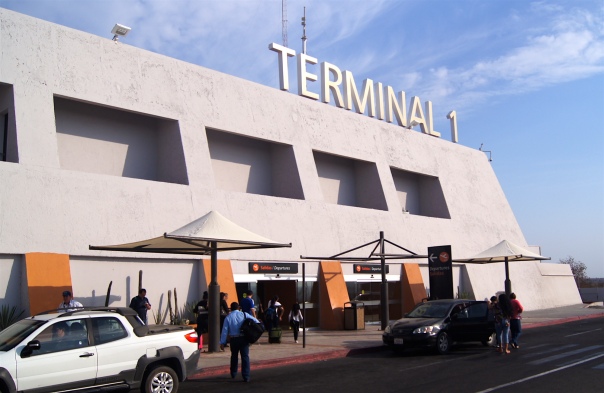
Checking in
Always check-in online and print your boarding pass yourself to avoid long lines at the airport. This is especially true for major holidays, like Christmas, New Year’s, Semana Santa (the week before Easter when everyone is off work), and the last two weeks in July.
Another reason is that because of their low prices, these independent airlines can be quite popular, so there may be long lines all the time, not only on big travel days. Also, having low prices means that they charge for everything, including choosing your seat and extra bags, and maybe even for printing your boarding pass at the airport. So checking in online can let you know what you’re in for.
But as I mentioned above, their websites can be clunky and don’t work well. So if the online check-in doesn’t work, think about showing up to the airport a little earlier than you normally would.
In bigger airports, like in Mexico City, you may see several different lines of people waiting for one airline. Ask a staff member for the correct line before committing to a wait. Also be aware that there may be two different check-in desks, domestic and international, in different parts of the airport.
Immigration and Customs
Although the information above deals with domestic travel, your first experience flying in Mexico will most likely be when you arrive from abroad. So here are a few tips about that.
After you get off the plane and enter the immigration area of the airport, make sure you get into the line for foreigners, not the one for Mexican citizens. Give the immigration officer your passport and the tourist card you filled out on the airplane. If you didn’t get it on the airplane, look for them in the waiting area. They are called the forma migratoria múltiple, or FMM.
It’s in Spanish but with English translations in the little boxes. Fill out both parts, and don’t write anything in the USO OFICIAL (official use) section.
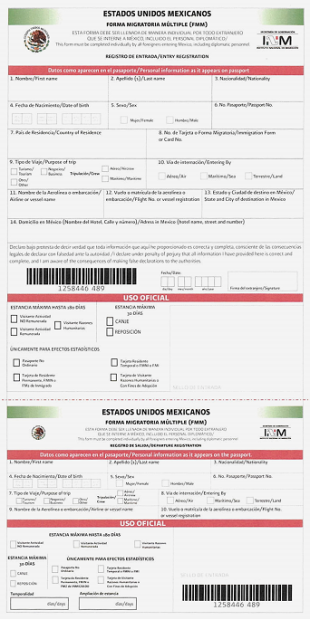
They usually don’t ask any questions, but simply stamp your passport and the FMM. If they do ask anything, it will probably be which hotel you are staying at, so have that info prepared just in case.
They’ll give you the bottom portion of the card. Put it in a safe place because you’ll need it to leave Mexico. If you lose it, you’ll have to pay an expensive fine, somewhere around $50 USD.
On arrival, most travelers to Mexico receive permission to stay six months in the country. You can see how much time they give you on the card.
The fee to enter Mexico, which changes often but is currently about $20 USD, is automatically included on the price of your plane tickets. In a way, that card is a receipt for the fee.
Next, after getting your luggage from the baggage claim, you’ll go through customs. Have the customs form filled out, which they also should have given you on the plane.
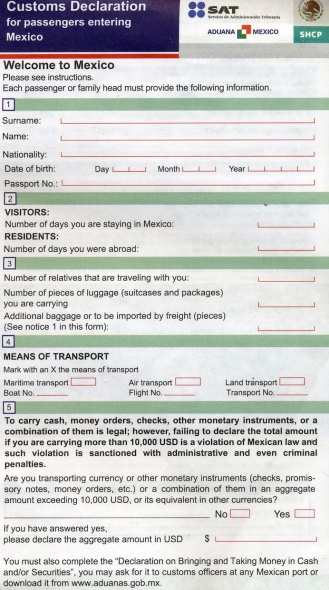
(Last time I flew into Mexico, there was no customs form. So if you don’t see one anywhere in the immigration area, don’t worry about it. The immigration form, however, is absolutely necessary.)
The procedure is simple—when the officer waves you forward, give him or her the form and press the button. It’s random: If the light turns green, you are free, and if it turns red, you will be searched. Like anywhere in the world, if you get searched, don’t complain or cause problems, which will automatically slow down the process. Just cooperate and keep your mouth shut.
When you are flying within Mexico, of course, you don’t need to go through immigration or customs, though you will need your passport for identification.
Transportation out of the airport
Every airport I’ve been to in Mexico is modern, safe, and easily navigable, even Benito Juarez International in Mexico City. Click the link for all about the airport. For now, just keep in mind that Mexico City’s airport, the country’s largest, is also pitifully small for such a huge city. Long delays are common, so make sure your layover is at least two hours.
The most important information about any airport is how to get out of it. In Mexico the easiest way is to use a safe taxi—taxi seguro in Spanish. They are also called taxi autorizado, or authorized taxis.
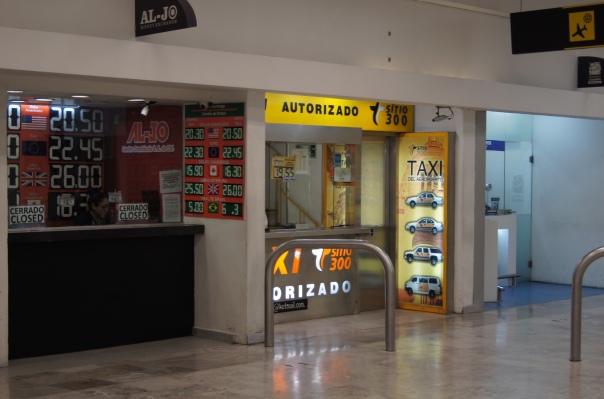
The price depends on which part of the city you will go to. Look at your hotel’s address for the colonia (neighborhood), often abbreviated to Col. If you’re downtown, near the city’s zócalo (center square), the colonia is probably centro.
Prices may be posted, or you may have to ask. If you don’t speak Spanish, write the name of the colonia on a piece of paper to give to the person. The price is for the trip, not the amount of people, so you can save money by finding someone on your flight to share with if your destinations are the same.
Compare the different prices from the different booths. If the attendant does not show you a written price, either posted in the booth window or from a folder or laminated document, be suspicious of being overcharged.
You pay at the booth and get some sort of receipt or ticket. Then walk outside and look for a line of taxis and give the taxi driver your ticket. You don’t have to tip him at the end of the ride, though I’m sure he’d appreciate 10 or 20 pesos.
The safe (or authorized) taxis are more expensive than the loose taxis waiting outside, but they are safe (hence the name). Do not take a ride with someone who approaches you inside the airport, which is definitely not safe. Keep looking for the taxi booths.
Larger airports may have buses as well, which is a good option if your destination is far from the airport, like a nearby town.
For instance, you can take a bus from the Tuxtla Gutiérrez airport in Chiapas to San Cristobal de las Casas (about an hour away), or from the Cancun airport to Playa del Carmen (1 hour 20 minutes away). There are stations in both terminals of the Mexico City airport with buses going to surrounding cities like Puebla, Querétaro, and Toluca. The last bus for most of these is around 11:00, and they stop selling tickets about 10 minutes earlier.
If you fly into the airport at San Jose del Cabo, you can take the modern local bus Ruta del Desierto from the bus stop in front of Terminal 1 all the way to Cabo San Lucas, or points in between like the beachfront hotels in San Jose for far cheaper than a taxi.
In general, to find the little bus station or group of booths inside the airport, look for bus icons on the signs inside the airport after you leave customs that say transporte foráneo (ground transportation), autobuses foráneos, or terminal autobuses (bus terminal).
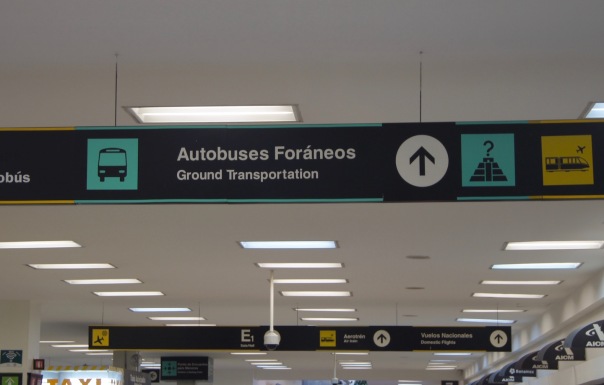
Of course, you can always rent a car and pick it up at the airport. Read all about driving in Mexico and renting cars here.
Changing Money
Try not to change money at the airport, as you’ll get a bad exchange rate. If you must, at least wait until after customs. The money-changing booths you see inside the baggage claim areas typically have the worst rate.
To prepare for this, look up the official exchange rate online at a website like coinmill.com. Then you’ll have an idea of how much extra you’re paying. (Of course, not even banks change money at the official rate—they always raise the rate a little more for buying and lower it a little for selling.)
Make some notes about how many pesos your home currency will get you, so you aren’t trying to make rushed calculations after a long flight. Make a sheet like this:
- $10 USD = 190 pesos
- $20 USD = 380 pesos
- 100 pesos = $5.30 USD
- 200 pesos = $10.60 USD
(These are just examples—please don’t use them.)
Currency exchange booths never change money at the official rate. The peso will always be worth a little less when you sell it and a little more when you buy it. Another tip—besides comparing the rate with your notes, also look at the difference between the rates for buying and selling. The bigger the difference, the more you’re getting ripped off.
A good alternative is to withdraw from an international ATM inside the terminal. Make sure it is from a bank, not a “commercial” ATM that charges higher fees. Common banks in Mexico are Bancomer, Banamex, Banorte, Santander, HSBC, and Scotiabank.
You’ll know the ATM has access to international networks if it has symbols like Cirrus, Plus, or Pulse. Look at the back of your card for these same symbols. If there are no symbols, you can try it, but it may not work. And for some reason the Visa or Mastercard symbol doesn’t always guarantee your Visa or Mastercard will work. If it doesn’t, just look for another bank ATM.
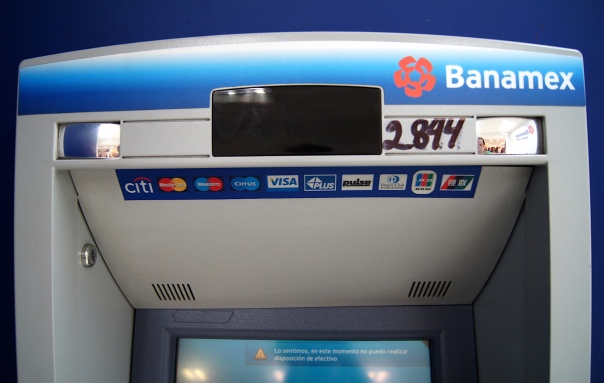
Of course, another option is to look for an exchange bank back home and get pesos there before you leave. Exchange banks specialize in currency exchange and, in my experience, always have the best rates, though of course compare to the official rates. You might even be able to do this at a regular bank. Not only will you save money, but you’ll save yourself the hassle of changing money once you arrive. Be sure to hide it in your socks!
Final Tips
Leave your hotel early the day you depart. You may get stuck in traffic or the airport may be inexplicably busy that day. Sure, waiting in the airport is boring, but it’s better than running around lost and frantic.
Be sure you know which airport terminal your flight will depart from or if you have a layover and must change planes. They are based on airline, and it’s easy to figure out by searching Google.
Tip: In the departure area of most Mexican airports, you can buy a beer at a convenience store and drink it at the gate, certainly for a better price than at TGI Fridays.
Mexico City, for example, has two terminals too far apart to walk between. You take a little train and you must show your boarding pass to use it. Cancun has four terminals and a little shuttle bus running between them, though terminals 2 and 3 are within walking distance (5-10 minutes).
Which brings me to my final tip. Tequila and other booze is cheaper at a liquor store or big box store (Comercial Mexicana, Wal-Mart, etc.) in the city than at the duty-free shop in the airport. (Also remember to NEVER buy tequila from a tourist shop, like near the beach, as it will be flagrantly overpriced.)
Just wrap your clothes around a few bottles and put them in your checked luggage. Find out how many liters you are allowed to bring into your country too. At the moment it’s three liters for the U.S., but you should confirm this with a Google search.
Have a nice flight, and please ask questions in the comments if I’ve forgotten something.
How to Travel Around Mexico by Bus for CHEAPIn "Mexico"
Cheap Travel in MexicoIn "Mexico"
My Top Tips for Travelers to MexicoIn "Lessons from the Road"






